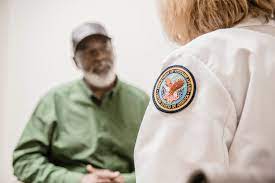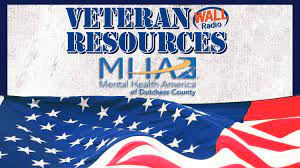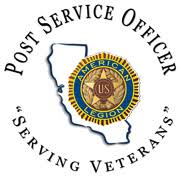Title: Honoring Our Heroes: The Importance of Veterans Care
Introduction:
When it comes to caring for our veterans, the significance cannot be overstated. These brave men and women have selflessly served our country, often facing unimaginable challenges and sacrifices. Providing comprehensive and compassionate care for veterans is not just a moral obligation, but a way to express our gratitude for their service. In this article, we will delve into the importance of veterans care and highlight some key aspects that contribute to their well-being.
Physical and Mental Health:
Veterans often face unique health challenges resulting from their military service. From physical injuries sustained during combat to mental health conditions such as post-traumatic stress disorder (PTSD), it is crucial that comprehensive healthcare services are readily available. Accessible medical facilities, specialized treatments, rehabilitation programs, and mental health support play a vital role in addressing these issues.
Transitioning Support:
Transitioning from military life back into civilian society can be a daunting process for many veterans. Assisting them in this transition is essential to ensure they can reintegrate successfully into society. Support services like career counseling, job placement assistance, educational opportunities, and mentorship programs help veterans find meaningful employment and purpose after their service.
Benefits and Compensation:
Veterans are entitled to various benefits and compensation as recognition of their service to the nation. Ensuring that they are aware of these benefits and helping them navigate the often complex application processes is crucial. These benefits may include disability compensation, pension programs, education assistance, housing support, insurance coverage, and more.
Homelessness Prevention:
It is disheartening that some veterans face homelessness upon returning from service due to various factors such as financial struggles or mental health issues. Combatting veteran homelessness requires a multifaceted approach involving affordable housing initiatives, targeted outreach programs, access to healthcare services, employment assistance, substance abuse treatment options, and ongoing support networks.
Community Support and Recognition:
Veterans deserve not only our care but also our gratitude and respect. Communities can play a significant role in supporting veterans by organizing events, volunteering at veteran organizations, showing appreciation through gestures like honoring ceremonies, and creating a welcoming environment that fosters inclusivity and understanding.
Conclusion:
Caring for our veterans is an essential duty that should be embraced by society as a whole. By providing comprehensive physical and mental health services, facilitating a successful transition into civilian life, ensuring access to benefits, preventing homelessness, and fostering community support, we demonstrate our deep appreciation for their sacrifice. Let us stand united in honoring our heroes by prioritizing the care they deserve.
Frequently Asked Questions About Veterans Care in the US
- Do all veterans get VA health care?
- What veterans are not eligible for VA health care?
- Is VA care the same as Tricare?
- Do all US veterans get free healthcare?
Do all veterans get VA health care?
No, not all veterans are eligible for VA (Department of Veterans Affairs) health care. Eligibility for VA health care depends on various factors, including the veteran’s service-connected disabilities, income level, and other qualifying criteria. The VA prioritizes care for veterans with service-related disabilities, those who were prisoners of war, recipients of the Purple Heart medal, and veterans with lower income levels. However, even if a veteran is not eligible for VA health care, they may still have access to other healthcare options through private insurance or other government programs like Medicaid or Medicare. It is important for veterans to explore their eligibility status and available options to ensure they receive the necessary healthcare services they need.
What veterans are not eligible for VA health care?
While the Department of Veterans Affairs (VA) provides healthcare services to a vast majority of veterans, there are certain categories of veterans who may not be eligible for VA health care. It is important to note that eligibility criteria can vary based on factors such as service-connected disabilities, income level, and other considerations. Here are some examples of veterans who may not be eligible for VA health care:
- Discharged under dishonorable conditions: Veterans who have received a dishonorable discharge from the military are generally not eligible for VA health care benefits. However, there may be exceptions in cases where the discharge is later upgraded or changed.
- Veterans with minimal or no service: In general, veterans who did not serve the required minimum active duty service during specific periods or did not complete their full term of service may have limited or no eligibility for VA health care benefits. However, they may still be eligible for certain other benefits.
- Higher-income veterans: Some veterans with higher incomes may have limited eligibility or may be required to pay copayments for certain healthcare services provided by the VA. The specific income thresholds and copayment requirements can vary depending on factors such as family size and geographic location.
- Certain non-U.S. citizen veterans: Non-U.S. citizen veterans who do not meet specific criteria, such as having an honorable discharge and being lawfully present in the United States, may have limited or no eligibility for VA health care benefits.
It is important to consult with the Department of Veterans Affairs directly or visit their official website to get accurate and up-to-date information regarding eligibility requirements for VA health care benefits. The VA can provide detailed guidance based on individual circumstances and help determine eligibility on a case-by-case basis.
Is VA care the same as Tricare?
No, VA care and Tricare are not the same. They are two separate healthcare programs in the United States that cater to different populations.
The Department of Veterans Affairs (VA) provides healthcare services specifically for eligible veterans. VA care includes a wide range of medical services, such as primary care, specialized care, mental health services, and rehabilitation. These services are provided through VA medical centers, clinics, and community-based outpatient facilities.
On the other hand, Tricare is the healthcare program for active duty military personnel, retirees, and their dependents. It is managed by the Department of Defense (DoD) and offers comprehensive coverage for medical services including doctor visits, hospital stays, prescription medications, and preventive care.
While both VA care and Tricare serve military-affiliated individuals, they have distinct eligibility criteria and operate under different administrative structures. Veterans who qualify for VA care may receive their healthcare exclusively through the VA system. Active duty military personnel typically receive their healthcare through Tricare while serving but may become eligible for certain VA benefits after leaving the military.
It’s important to note that each program has its own rules, procedures, and coverage options. If you have specific questions or need assistance with either program, it is recommended to reach out to the respective organizations for accurate information tailored to your situation.
Do all US veterans get free healthcare?
No, not all US veterans receive free healthcare. The Department of Veterans Affairs (VA) provides healthcare services to eligible veterans, but the level of coverage and eligibility criteria vary depending on several factors.
The VA operates a comprehensive healthcare system that includes hospitals, clinics, and other medical facilities across the country. Veterans who qualify for VA healthcare benefits can receive a range of services, including preventive care, primary care, specialty care, mental health services, and prescription medications.
To be eligible for VA healthcare benefits, veterans must meet certain criteria such as having served in active military service and receiving an honorable discharge. Additionally, eligibility is based on factors like income level, disability status, length of service, and priority groups assigned by the VA.
While some veterans may be eligible for free or low-cost healthcare through the VA system based on their income level or disability rating, others may be required to pay copayments or enrollment fees depending on their financial circumstances.
It’s important for veterans to understand their specific eligibility status and benefits by contacting their local VA facility or visiting the official VA website. Additionally, certain veterans may also have access to healthcare coverage through other sources such as private insurance plans or employer-sponsored programs.




